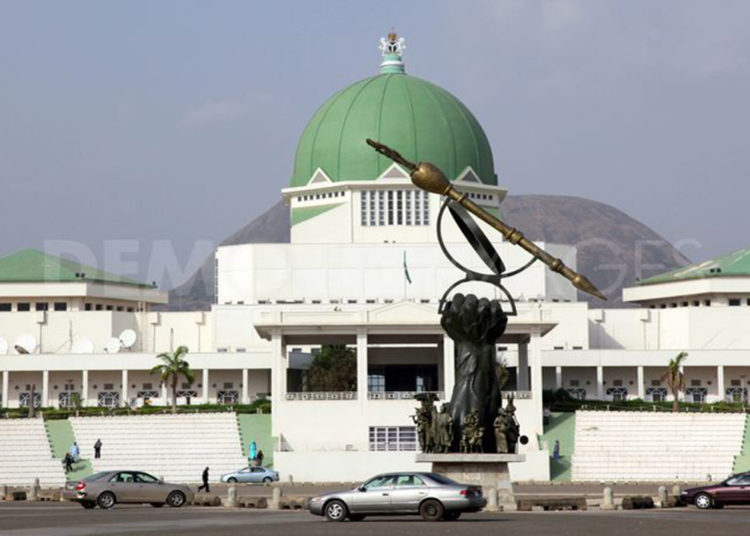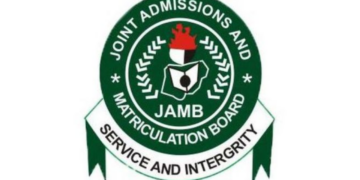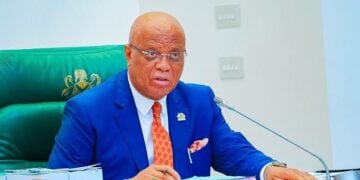A coalition of Civil Society Organisations (CSOs) has proposed 37 amendments in the ongoing constitution and Electoral Act amendments.
On Thursday, 31st October, a coalition of civil society organisations that focus on elections, good governance, and democratic participation for citizens and traditionally marginalised groups presented its Citizens Memorandum on Electoral Reforms to the National Assembly’s Joint Committee on Electoral Matters of the National Assembly as part of its engagement on improving Nigeria’s electoral legal framework for credible, inclusive elections.
The coalition members, who are the implementing partners of the European Union’s Support to Democratic Governance in Nigeria (EU-SDGN), compiled the memorandum based on input from a Citizens’ Town Hall on Electoral Reforms held in November 2023.
A statement from Yiaga Africa said the memorandum is focused on three core pillars of the electoral legal framework for the conduct of elections: the Constitution of the Federal Republic of Nigeria, 1999, the Electoral Act 2022, and INEC Regulations and Guidelines for Elections.
“It contains 21 recommendations for constitutional amendments and 16 amendments for amending the Electoral Act. These recommendations cover all aspects of elections in Nigeria, including independence for the Independent National Electoral Commission (INEC) and its unbundling, electoral offences, diaspora voting and electoral technology,” the statement said.
Presenting the memorandum to the Committee, Dr Akin Akingbulu, the Executive Director of the Centre for Media and Society (CEMESO), said the coalition hoped that it would serve as a critical resource and roadmap for guiding lawmakers and all election stakeholders through priority areas that need immediate attention.
“These amendments are strategic in their scope and ambitious in their vision, yet they are also rooted in practicality, responding to the realities of our current electoral system. We urge the National Assembly to strongly consider the proposals we are presenting in this Citizens’ Memorandum on Electoral Reforms,” he said.
Another coalition member, Mr. Lanre Arogundade, the Director of the International Press Centre (IPC), urged the National Assembly to ensure extensive consultations across the country so that more citizens could participate and articulate their ideas for electoral reforms.
“It is also important that the National Assembly promptly concludes the process for the amendment of the legal framework for the conduct of the elections, as this will provide the opportunity to test the efficacy of the Act before the 2027 general elections,” he added.
The Chairman of the House of Representatives Committee on Electoral Matters, Hon. Adebayo Balogun, received the memorandum on behalf of the National Assembly. In his remarks, Hon Balogun appreciated the coalition for putting together the memorandum and assured them that the National Assembly would be looking into the proposals.
“One thing that this Assembly is committed to is ensuring that we deliver an improved electoral legal framework that will guarantee elections that Nigerians can all be proud of. This is critical to rebuilding trust in our electoral system. We will be looking at all possible ideas to help us achieve this,” he said.
The EU-SDGN cohort is made up of the following members: Centre for Media and Society (CEMESO); Corporate Accountability and Public Participation Africa (CAPPA); Civil Society Legislative Advocacy Centre (CISLAC); DAI Nigeria; ElectHER; International Institute for Democracy and Electoral Assistance, International IDEA; Institute for Media and Society (IMS); International Press Centre (IPC); Justice, Development and Peace Initiative (JDPI), Ado-Ekiti; Justice, Peace and Development Movement (JPDM), Oyo; Justice, Development and Peacemakers Centre (JDPMC) Osogbo; The Kukah Centre; the Nigerian Women’s Trust Fund (NWTF); the Policy and Legal Advocacy Centre (PLAC); SOS Children’s Village; TAF Africa and Yiaga Africa.











